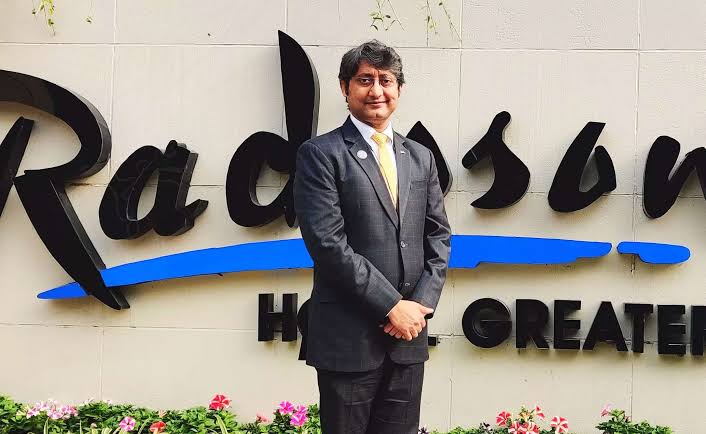Asmita Mukherjee | Hyderabad
As the winter season approaches, it marks the beginning of India’s busiest and most vibrant wedding season, with 75% of auspicious Hindu wedding dates, or “Saya dates,” clustered in this period. For Radisson Blu Greater Noida, this presents not just a business opportunity but a challenge to manage the surge in demand while maintaining the standards of unmatched hospitality. Anirban Sarkar, General Manager, Radisson Blu Greater Noida, reveals how the property is poised to meet these demands while staying ahead in India’s dynamic hospitality landscape.
The systemic shift of the Indian wedding industry from the unorganized to the organised sector has created unprecedented opportunities for hotels. According to Sarkar, the hotel achieved its highest-ever revenue in Q3 2023 (October–December), which marked a turning point. This year, the property is set to surpass those numbers with a projected 17–18% revenue growth. “After clocking the best-ever sales, to further improve by 17–18% the very next year is kind of unprecedented,” he shares.
Weddings now go beyond the traditional reception, with pre- and post-wedding events such as Mehendi, Sangeet, and bachelor parties becoming revenue multipliers. Sarkar emphasises that these smaller events often generate more income collectively than the main ceremony. “These events, coupled with room bookings, make weddings a substantial revenue driver,” he explains. To capitalise on this, Radisson Blu Greater Noida has introduced comprehensive packages that include bridal grooming, salon services, transport, and even customised gift hampers, ensuring an all-inclusive experience for wedding guests.
Large-scale Indian weddings are synonymous with elaborate buffets, often leading to significant food wastage. The hotel has implemented measures like mono-portioned servings, live counters, and smaller buffet refills to minimize wastage while maintaining quality. “Despite a substantial increase in food costs, we have managed to control wastage effectively, keeping our food cost percentage steady,” Sarkar notes, emphasising their commitment to sustainability without compromising quality.
While weddings dominate the winter season, the Meetings, Incentives, Conferences, and Exhibitions (MICE) segment remains a key revenue contributor, accounting for 60–65% of overall business. Sarkar highlights the property’s strategic location near the India International Expo Mart in Greater Noida as a major advantage. Despite competition from new venues like Pragati Maidan and the New Delhi Dwarka convention center, the MICE business has remained strong.
The hotel expects an 80% occupancy rate in H2 2024–25, with November and February being the busiest months. Sarkar credits proactive revenue management for a projected 15–16% increase in average daily rates compared to the previous year.
Radisson Blu Greater Noida differentiates itself by focusing on quality over quantity. “We avoid large, noisy weddings and cater to smaller, bespoke events,” Sarkar says. This approach not only enhances guest satisfaction but also ensures minimal disruption to corporate clients. The property has also upgraded its infrastructure and formed strategic partnerships with vendors to offer customised experiences that resonate with modern clientele.
India’s hospitality industry is evolving rapidly, driven by trends such as digital transformation, sustainability, and a surge in wedding-related travel. Radisson Blu Greater Noida is embracing these changes by upgrading IT infrastructure, integrating SaaS solutions, and offering carbon-compensated meetings. The property has also designed curated travel experiences for business travelers, leveraging nearby destinations to enhance guest stays.


